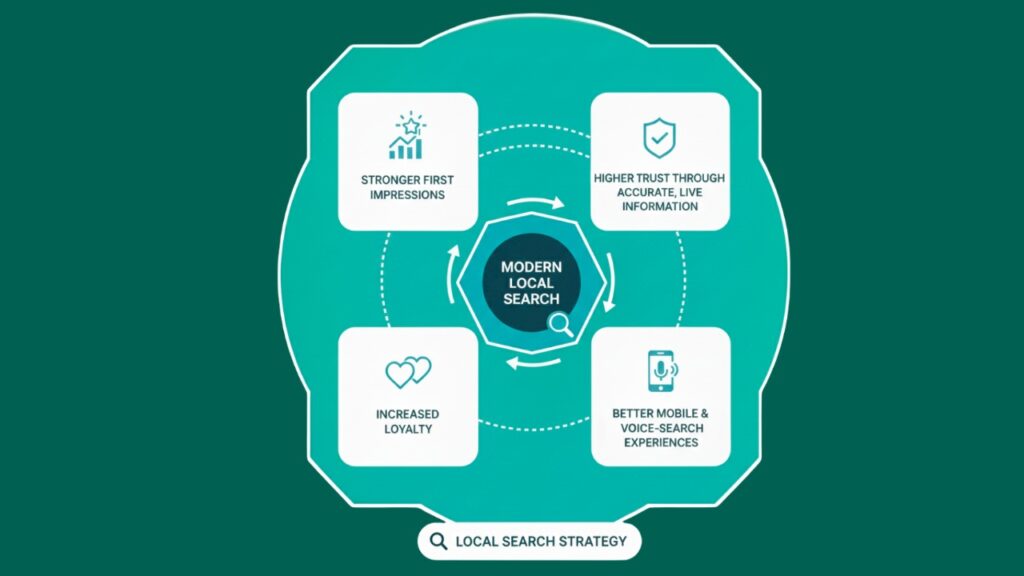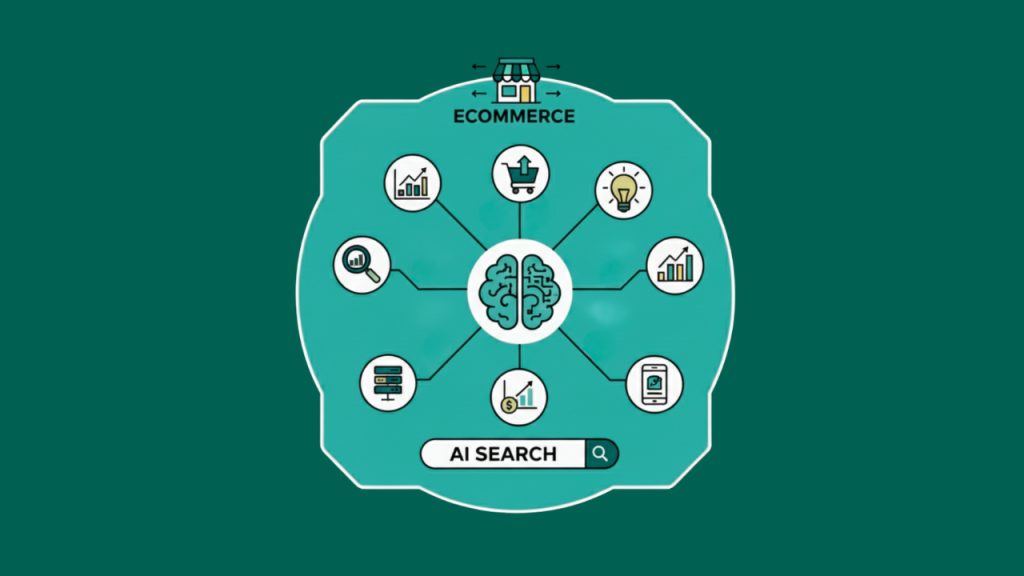Introduction
Search is changing. Artificial intelligence (AI) is now at the forefront of how online content appears. Hence, businesses need to change some of their strategies to maintain visibility. One of the most powerful but underutilised tools is structured data. But how exactly can UK businesses use structured data for AI SEO?
The answer lies in the concept of a direct translator. The schema markup acts as a direct translator for your content. It tells AI exactly what your page is about, be it a product, local service, or article. The impact is clear. Pages with structured data are 4x more likely to appear with rich snippets.
These enhanced results can improve click-through rates by over 30%. In a crowded digital landscape, this clarity is not just a technical matter. It is strategic. It is the key to being seen, understood, and chosen by both AI and your next customer.
Table of Contents
What Is Structured Data?
Structured data is a code format that you add to your website. It gives search engines explicit hints about the content of the page. You can think of it like a nutrition label on food packaging. It allows you to quickly interpret what’s exactly inside while not having to read the entire package.
The primary formats are JSON-LD, Microdata, and RDFa. JSON-LD is now Google’s preferred option. It takes place in the <head> of your web page and is easier to manage. This code does not modify what your users see. It “speaks” on behalf of the content to AI and search engine crawlers. It labels each piece of content. It defines a product name, its price, its reviews, an event’s date, or a business’s address. This removes all guesswork for AI.
Structured Data vs Traditional SEO
Traditional SEO is all about keywords, backlinks, and meta tags. It is important, but it is like providing a detective with clues. They have to fit the story together themselves.
Structured data for AI search differs. It is more like presenting the detective with a signed confession and all the facts on a plate. You are not merely hoping the AI gets your content. You are informing it precisely what it says. This move away from keyword-based to semantic, context-aware SEO is what contemporary AI systems require.
Why Structured Data Is Critical for AI Search
It cannot be emphasised too much. Structured data powers a lot of advanced search functionality.
Rich Snippets: Those rich search results with star ratings, prices, or event dates. They are derived from structured data.
Knowledge Graphs: The Panels of information that show up on the right-hand side of search results. They are constructed from structured data.
Featured Snippets: The “position zero” responses that show up at the top of the page. Structured data is what AI uses to pull these responses confidently.
AI Assistant Answer: When you query Google Assistant, it reads the response from a webpage that has structured data.
The Ofcom Adults’ Media Use and Attitudes 2023 report states that over 92% of UK adults use the internet at home or outside of the home. The UK Office for National Statistics (ONS) reported that 77% of adults made purchases of goods or services online in 2017. These users want search engines to deliver precise information driven by schema.
How AI Interprets Structured Data
AI in Search Engines (BERT, MUM, GPT-style models)
Google’s AI models, such as BERT and MUM, are meant to comprehend natural language. They don’t simply match keywords. They know the context and semantics of a user’s question. They want to comprehend the entire meaning of your content in order to give the best possible response.
Structured Data Feeding AI
Structured data is the ideal solution for this. It is a clear, unambiguous information hierarchy. It says to the AI, “This is the product title. This is the cost. This is the review score.” This enables the AI to know the purpose and intent of the content immediately. It can then compare it with sophisticated user queries with precision.
Impact on Search Visibility
The payoff is significantly better search visibility. An appropriately marked-up product page can show up in shopping results, rich snippets, and voice search responses. A local company can appear in the local pack, with reviews and hours of operation prominently highlighted. This multi-front presence translates to more impressions, increased click-through rates, and better-qualified traffic.
Types of Structured Data That Matter for AI Search
Product Schema
A necessity for any e-commerce website. It makes your products show up with images, prices, stock availability, and review ratings. This is fed directly into AI recommendation systems across Google.
Local Business Schema
Essential for UK businesses with a physical presence. For estate agents, restaurants, solicitors, and shops, it makes you visible in key local searches. It informs AI of your address, opening times, and area of service. This is crucial for “near me” searches by AI.
Article, Blog, and FAQ Schema
Essential for content-focused publishers. Article schema gets your blog or news articles to appear in top stories carousels. The FAQ schema is a powerhouse for voice search. It gives the direct answers that AI assistants read out aloud to users, creating expandable dropdowns in SERPs.
Event, How-To, and Review Schema
These enhance engagement and comprehension. Event schema promotes webinars or concerts. How-To schema can put your content on visual step-by-step results. Review schema displays your critical acclaim directly in the search results.
Implementing Structured Data – Step by Step
Conduct a Structured Data Audit
First, look at what you already have. Test your pages using Google’s Rich Results Test or Schema Validator. Use Screaming Frog to crawl your site and audit for existing markup at scale.
Choosing the Right Schema Types for Your Business
Match your schema to your intent. An e-commerce website requires the Product and Review schema. A service-based local company requires the Local Business and FAQ schema. A publisher requires the Article and How-To schema.
Best Practices of AI Search Optimisation
- Be Precise: Only mark up what a user can see and interact with.
- Don’t Spam: Do not mark up non-relevant content. Stick to Google’s advice.
- Use JSON-LD: It is the simplest to use and maintain.
- Be Specific: Make use of the most precise schema type possible.
Monitoring and Testing
Implementation is not completion. Use Google Search Console to track your rich result status and errors. Monitor how your marked-up pages are performing in search analytics. The digital world evolves, and your schema might need to be updated.
Measuring the Impact of Structured Data on AI Search Visibility
Key Metrics to Track
- Impressions: Are pages showing up more in search?
- Click-Through Rate (CTR): Has CTR increased for rich result pages?
- Organic Traffic: Is qualified traffic increasing?
- Rich Result Reports: Review Google Search Console for detailed data on rich result performance.
At Midland Marketing, we help businesses measure the actual impact of structured data by tracking key performance metrics that highlight visibility and engagement in search.
Tools for Measurement
- Google Search Console: The core tool for monitoring search performance and rich result errors.
- SEMrush/Ahrefs: Good for monitoring total organic traffic and ranking positions.
- Google Rich Results Test: For testing pages one by one.
We combine these tools with in-depth analysis to give businesses clear insights and actionable strategies. We ensure their structured data delivers measurable growth.
Optimising Based on Insights
Data speaks. If your page has a high number of impressions but minimal CTR, maybe your description or title requires adjustment. If you notice errors in Search Console, address them. SEO is a process of iteration. Tune your schema and content based on performance.
We help businesses turn these insights into clear actions. We ensure every optimisation step leads to measurable growth.
Future Trends in Structured Data and AI Search
AI Personalisation
AI will use structured data to tailor results to individual user intent and search history. The more accurate your markup, the more effectively AI can map your content to the appropriate user.
Conversational and Voice Search
Voice search has exploded. Responses from voice assistants are primarily sourced from pages that are marked up with the FAQ and Article schema. Optimising for this now is crucial.
New Schema Types and Standards
As AI advances, so too will schema. Be prepared for more in-depth and anticipatory markup for e-commerce, events, and recommendation systems driven by AI. Being ahead of these standards will be a significant competitive strength.
Structured Data as a Strategic Asset
Structured data is no longer a sophisticated technical SEO strategy. It is an imperative for visibility in the era of AI search. It directly enhances the way AI understands your content, to richer results, increased CTR, and quality traffic. It is a direct communication with the algorithms deciding your business’s web success.
Actionable Next Steps
- Audit: Audit using free tools to review your existing structured data status.
- Implement: Begin with the most relevant schema types for your business.
- Monitor: Monitor through Google Search Console to track performance and errors.
- Refine: Ongoing optimisation of your markup based on data and new trends.
To get AI to rank your business, you must first get it to understand your business. This is fundamentally what structured data for AI search visibility is all about. This is a direct investment in making your content clear to AI. When algorithms understand you, your business appears in future searches as well.
Midland Marketing assists businesses in converting technical SEO into real growth through integrating structured data strategies with AI-oriented optimisation.
Whether you are a retailer, service provider, or publisher, our team ensures your content is properly optimised for AI-led search visibility.
Want to improve your search performance? Get in touch with us today for a bespoke, structured data audit and find out how we can increase your visibility in the era of AI.
Frequently Asked Questions
1. What does structured data for AI search visibility mean?
It is an SEO code (schema markup) that enables AI-based search engines to recognise your content, enhancing rankings and rich results.
2. Why is structured data more critical nowadays than traditional SEO alone?
AI is concerned with meaning and context, not keywords. Structured data provides AI with the context in which to present your business as rich results and voice answers.
3. Which structured data types benefit UK businesses most?
LocalBusiness, Product, Article, Event, and FAQ schema are most effective for UK sectors such as retail, real estate, and publishing.












